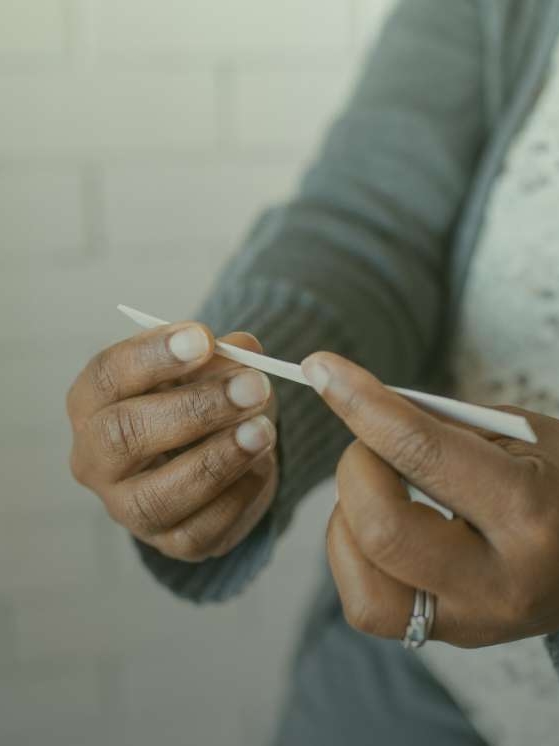There are a lot of rumours and misinformation out there about trying for a baby during perimenopause. In this article, we will try and de-bunk some of these myths and provide you with some helpful tips to optimise your chances when trying for a baby with four ways to improve your fertility in perimenopause.
Firstly, What Is Perimenopause?
Perimenopause is the time before menopause. ‘Peri’ means around or surrounding, so this translates as ‘the time around menopause.’ During this time, women typically have irregular cycles of menstruation (periods) and ovulation (producing and releasing eggs).
Perimenopause ends 12 months after your last menstrual period. At this point, you would be in menopause.
Your oestrogen levels fall gradually in your 40s. You will continue to produce eggs and experience menstrual periods, but they may occur less frequently or become irregular and less predictable. Even if your periods are absent for a few months and then return, you can still get pregnant during this time, as you will still be producing eggs (ovulating).
How Do I Know If I’m In Perimenopause?
If you are unsure if you’re in perimenopause or have any concerns at all, ensure you discuss your symptoms with your GP/family doctor/fertility specialist as soon as possible.
Most women will experience perimenopause symptoms in their 40s. However, perimenopause and menopause can happen earlier than this, so if you are experiencing any of these symptoms in your 30s or early 40s, it is important to speak to your doctor straight away.
You may notice a variety of symptoms; some of these symptoms are like what women report in menopause. These include:
- Irregular periods
- Sleep problems
- Hot flushes
- Decreased sex drive
- Mood changes – including depression and irritability
- Vaginal dryness
- Increased number of urinary tract infections
What If My Periods Were Already Irregular?
It can be harder to be sure if you’re in perimenopause if your periods were already irregular, but continue to monitor your periods and ovulation, and look out for any of the above symptoms.
If you are unsure if you’re in perimenopause or have any concerns at all, ensure you discuss your symptoms with your GP/family doctor/fertility specialist as soon as possible.
Can I Get Pregnant When I’m In Perimenopause?
It is still possible to get pregnant during perimenopause and conceive naturally, as you will still be producing eggs (ovulating). However, as time goes by, it can become harder to conceive naturally due to a decrease in your sex hormones and reduced quantity and quality of eggs produced. Therefore, it’s important to act as early as possible when you’re trying to conceive.
What Can I Do To Improve My Fertility In Perimenopause?

Here are four of our top tips to help your fertility journey! Let us know if you agree in the comments, and let us know anything you’ve tried to help yourself!
- Get Medical Advice ASAP
Consult your doctor and fertility specialist as soon as possible. It helps to get expert advice as soon as you can, especially if you are in perimenopause, but also at any stage of your fertility journey.
- Monitor Your Ovulation
Symptoms: Look for symptoms that might indicate you are ovulating. Breast tenderness and white vaginal discharge in the middle of your cycle, between periods (can be harder to tell if your periods are irregular), can be a sign you are ovulating, and this is a good time to increase the amount of sex you are having with your partner.
Ovulation tracking: Use our Hoopsy Ovulation Tracker to track your cycle and ovulation. Use ovulation test strips, which are available to buy from your local pharmacy. These tests for luteinizing hormone (LH, a sex hormone) in your urine. If this has risen and the test is positive, it is highly likely that ovulation will happen in the next 12-36 hours. This is the best time to have more sex to increase your chances of becoming pregnant.
3. Diet & Exercise
You know the drill by now, but just a reminder! Make sure to eat a well-balanced diet, drink plenty of water and take your prenatal vitamins daily. Maintaining a healthy weight and regular exercise can also help improve your chances. Drinking alcohol in moderation is also important. Try to avoid binge drinking or drinking to excess where possible.
4. Consider Your Fertility Options Early
Discuss your wishes and goals with your doctor, fertility specialist and partner. While trying to conceive naturally, it is good to consider your ‘back-up’ options, and consider egg freezing, assisted reproduction (such as IVF) and donor eggs (fresh or frozen). It may also be beneficial to create a plan or timeline about when you would consider additional help if you were having difficulties conceiving naturally.
If you are going through perimenopause and are trying for a baby, the most important things are to act early, get advice from your doctor, eat as healthy as possible and monitor your ovulation. Being in perimenopause can make falling pregnant naturally more difficult, but that does not mean it is impossible!
Good luck with your journey! If you have any of your own tips or advice, please feel free to leave a comment below 🙂
About Hoopsy
Hoopsy is on a mission to make healthcare more sustainable—starting with eco pregnancy test kits. Our plastic-free, paper-based hCG pregnancy test strips reduce waste without compromising accuracy. We believe better health starts with better choices—for you, and for the planet.
Learn More About…








